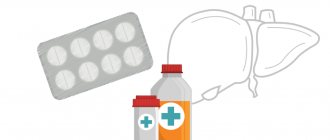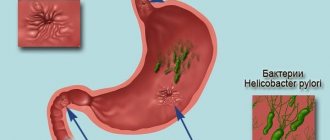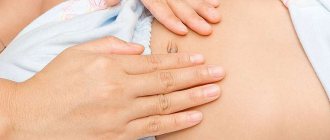Babies who are breastfed have loose stools quite often. There is no need to worry too much about this. During infancy, the digestive system of a small organism is not yet fully formed, which is the first cause of abnormal bowel movements. Sometimes these problems may indicate the presence of some disease. It is important not to panic, but to try to find out the cause of this symptom.
Causes of loose stools in infants
The presence of loose stools does not necessarily indicate health problems with the baby. Although it is known that the first symptoms of various diseases are digestive system upset and diarrhea.
When an infection enters a baby's body, its digestion is disrupted. The source of infection may be one of the parents. In this situation, you need to more carefully follow the basic rules of personal hygiene. Adults carry a huge number of microbes on themselves, which do not pose any danger to them. The same cannot be said about the child.
Breasts are too sensitive to external irritations. Infectious infection can be determined by the behavior and condition of the baby. He becomes irritable and restless, as he suffers from abdominal pain. This often causes the temperature to rise.
Dysbacteriosis manifests itself in the presence of watery stools in a child. This disease develops due to taking antibiotics or other medications. Usually, when prescribing antibiotics, the doctor recommends taking probiotics. But they must be taken in accordance with the dosage indicated by the pediatrician.
Violation of the nursing mother's diet. The quality of breast milk depends on the foods a mother eats. If a woman eats cucumbers, beets, apples or pears during breastfeeding, the child may develop diarrhea. The same reaction occurs when new foods appear in a woman’s diet.
Intolerance to certain types of foods. Each person has their own attitude towards different products. In case of a negative reaction to a particular dish, the child develops loose stools.
Malabsorption is a manifestation associated with impaired absorption of food in the small intestine. It occurs due to a deficiency of the enzyme responsible for the digestion process.
The considered cases of diarrhea are more related to intestinal problems. But this is not the only reason. Watery stools may occur during teething. Diarrhea caused by teeth is typical for children from three months to six months.
Why does a child have diarrhea: possible reasons
Diarrhea in infants can be caused by various reasons. Diarrhea can be a symptom of influenza or tonsillitis - a serious test for the infant’s fragile immunity. An acute respiratory infection can be suspected if there is a cough, nasal congestion, redness and swelling of the nasopharynx. The best decision is to call a pediatrician at home. If parents also notice a rash, they should call a doctor immediately: the baby may have contracted scarlet fever, measles or rubella.
Diarrhea may also indicate an intestinal infection or food poisoning: for example, if the child has eaten expired or allergic foods. A newborn's stool disorder can also be provoked by the nursing mother's consumption of "undesirable" foods, such as mushrooms, sausage, soda, and citrus fruits.
Diarrhea coupled with an increase in temperature is detected with serious surgical problems: peritonitis, appendicitis, volvulus. Often, pathologies of the gastrointestinal tract are also accompanied by vomiting.
One of the most common causes of loose stools in a baby is dysbiosis - a violation of the quantity and composition of beneficial intestinal microflora. Nine out of ten babies under the age of one year experience this phenomenon; WHO does not even classify it as a disease. Diarrhea due to dysbiosis occurs more often and longer in weakened, premature babies.
The causes of dysbiosis and, as a consequence, diarrhea in infants may be as follows:
- late breastfeeding. Even a half-hour delay between birth and the first feeding can have a detrimental effect on the baby’s health. Colostrum is rich in components that stimulate the development and growth of bifidobacteria, and their deficiency can result in diarrhea in the newborn. For the mother, the consequences are also unpleasant: this is fraught with a decrease or even disappearance of milk, a longer and more painful period of postpartum rehabilitation;
- artificial feeding. High-quality and carefully selected infant formula is a worthy alternative to breast milk, but it cannot fully replace it. Together with mother's milk, the baby receives immune protection, which helps its intestines suppress the growth of pathogenic bacteria and increase the number of beneficial microorganisms;
- poor or unhealthy diet. A balanced diet and a regulated diet are the basis for proper physical development, good health and mood of the baby;
- lactose intolerance. The child’s body’s rejection of milk protein, one of the fundamentals of nutrition for babies under one year of age, is a big problem. By digesting lactose, the body receives the “building blocks” necessary for cell growth and development. And loose stools are an even lesser evil caused by lactose intolerance;
- diseases that cause malabsorption in the intestine. Maldigestion syndrome (improper digestion) can be caused by various reasons. The most obvious are inflammatory or chronic diseases of the gastrointestinal tract: stomach, pancreas, small intestine. These include: gastroduodenitis, peptic ulcer, nonspecific ulcerative colitis. But malabsorption of nutrients can also be caused by malfunctions of other organs and systems, such as the liver or cardiovascular system. Only medical diagnostics and test results can indicate the root cause of health problems;
- allergic diseases. Food allergies and atopic dermatitis also often lead to consequences in the form of loose stools. Unfortunately, allergies are the scourge of the modern world, and it is rare that a person has not encountered manifestations of this autoimmune disease. Diarrhea is one of the small body’s attempts to resist allergens and physically get rid of them. Unfortunately, this does not always turn out to be an effective measure in the fight against the disease - rather, on the contrary. Due to insufficient supply of nutrients, the body quickly depletes energy reserves and weakens. If you suspect an allergy, you should contact your pediatrician as soon as possible and consult with an allergist;
- acute infectious diseases. A child may also react to intestinal infections, flu and other gastrointestinal diseases with loose stools. This is a self-cleaning mechanism, the release of pathogenic microbes from the body. However, the efforts of a fragile infant body, as a rule, are not enough; medical assistance is needed;
- Long-term use of antibiotics and other medications weakens the immune system and destroys healthy microflora involved in the breakdown and absorption of food. Antibiotics are equally merciless against both pathogenic and beneficial bacteria. After completing the course of treatment, the number of “correct” microorganisms must be urgently restored.
Normal stool in infants
Babies "go to the toilet" quite often. At first, they can empty themselves up to ten times per day. Over time, this happens less frequently, and by six months the frequency of bowel movements is 2-5 times a day. A newborn's first stool (meconium) is dark and thick.
In the future, various problems arise with the baby’s bowel movements and feces. They continue until the baby’s intestines become more “independent”, since now his nutrition is significantly different from that in utero.
You can find out how many times a newborn should go to the toilet in our article. What to do when a child is afraid to go to the toilet in a big way, read here.
What to do when a newborn has a stomach ache, read the link
After birth, the baby's stool will ideally have a yellow color, but sometimes it will have a green tint with the presence of grains and foam. The color and consistency of stool can determine your baby's reaction to breast milk. When a child reaches the age of one month, his stool becomes more uniform in consistency. Now, by its color and density, you can understand how the mother’s nutrition affects the baby.
If streaks of blood are found in the stool, and the color of the stool is dark, this indicates internal bleeding. In this case, you need to urgently contact your pediatrician.
A baby can have loose stools for up to two months after each meal. From birth, the intestinal flora lacks beneficial microorganisms, enzyme production is weak, which, in combination with the peculiarities of the anatomical structure of the gastrointestinal tract, leads to the rapid passage of food through all parts of the gastrointestinal tract and its rapid digestion.
Should a mother be concerned if her newborn passes watery stool?
How often should a baby have bowel movements and what does watery stool in a newborn, similar to diarrhea, mean? These questions concern all parents who do not have sufficient experience in caring for children. If a child eats easily digestible food, his feces will not be formed. It resembles a thin paste, but is not a sign of diarrhea. In another situation, strange feces deserve detailed examination.
Fecal norms for different feedings
The color and density of bowel movements in infants are determined by the method of feeding.
- When breastfeeding, stool is released that is liquid and mushy, resembling diarrhea in appearance. The color of the mass is yellow, green, and golden. The diet of a nursing woman is responsible for the coloring of food waste. The dairy products she consumed make her stools yellowish. If plant ingredients predominate in the diet, the newborn may experience greenish stools. Curdled lumps among stool are also considered normal. The stool smells sour.
- In formula-fed babies, the shades of stool vary from pale yellow to light brown. The consistency is thick and pasty, the smell is unpleasant. The stool of a child under one year of age becomes thick and more or less formed after the introduction of complementary foods.
Regarding the frequency of stool, Dr. Komarovsky says that in the first month of life, a baby can have bowel movements up to 10 times. per day (almost after every feeding). “Artificial babies” poop half as often and in larger portions. Delayed stool for up to 2 days without manifestations of flatulence is not considered a deviation.
Why does stool consistency change?
One of the causes of altered feces in infants is intestinal infection. If the physiological development of the baby corresponds to age norms, but loose, watery stools are often passed, this condition indicates a prolonged adaptation of the tract to new living conditions.
The stool remains unformed under the influence of various factors.
- Violation of sanitary standards during the preparation of baby food. Poorly washed dishes may contain bacteria that can cause problems with the gastrointestinal tract.
- A sudden transition from mother's milk to cow's milk causes intestinal problems in some children.
- Congenital malformations of the gastrointestinal tract. Deviations are detected only in a clinical setting. Treatment is carried out by medical staff under the supervision of a doctor. In special cases, the participation of a surgeon is required.
- Dysbacteriosis. An imbalance of gastric microflora distorts the functioning of the entire digestive system.
- Decreased immunity. A weak defense system alters the functioning of the intestines, causing the tract to excrete stool containing water.
Doctors do not link liquefied stool in the morning to nutrition. Usually the symptom indicates a nervous state of the baby, who needs more attention and a calm environment.
Differences between loose stools and diarrhea
Parents can distinguish simple loose stools from diarrhea by several signs. Let's look at what happens with diarrhea.
- Increased frequency of bowel movements.
- The stool becomes even more liquid and watery.
- Stool is expelled from the anal canal abruptly.
- The masses have a distinct green color and a sour odor.
- Mucous or bloody streaks and foam are visible in the stool.
In addition to these symptoms, the attention of parents is drawn to the altered state of the baby. Moodiness, poor sleep, refusal to eat, increased gas production and temperature changes confirm his poor health and require medical advice.
Solving the problem of watery stools
What should I do if my baby passes stool like water? First of all, the mother should review her diet and keep a food diary, in which all the foods eaten and the child’s body’s reactions to their intake with milk will be entered. Juices, fresh fruits and vegetables can liquefy stool. They deserve special attention.
No matter how much a woman would like to eat a variety of foods, she must understand the importance of breastfeeding and breastfeed the baby on demand. Mother's milk contains the antibodies necessary for the baby to fight intestinal infections, and beneficial bacteria that form the flora of the tract. GV with frequent liquid evacuation will serve to prevent dehydration of the child’s body.
If an “artificial” person defecates with watery stool, most likely the composition of the mixture consumed is not suitable for him. In this situation, the mother should consult a pediatrician and choose a new diet. However, switching to other mixtures, especially frequently, also leads to changes in stool.
Reasons for urgently contacting a pediatrician
One-time episodes of strange stool in children aged 2 to 3 months are considered physiological standards. Until 1 year of age, all body systems are developing, but changes in the gastrointestinal tract are most clearly expressed. If the baby is feeling well, there is no reason to worry.
But if the baby is nervous, loses weight, twists its legs, vomits and burns from a high temperature, it is necessary to urgently call a doctor at home. Frequent, loose stools are dangerous for the baby due to dehydration.
The following symptoms help to recognize it:
- tight skin;
- faint cry;
- tearless crying;
- sunken fontanel;
- lethargic state;
- dark, foul-smelling urine;
- increased body temperature;
- a small amount of bowel movements (diapers are soiled only twice per day).
The specialist will decide how to treat a child with watery stools after a general examination and obtaining answers from a stool analysis. In case of intestinal infection and dysbiosis, the little patient will be prescribed antibiotics, sorbents, and probiotics. In case of severe dehydration, the baby is saved with electrolyte solutions.
Our specialist comments
- Watery, greenish stools may be a sign of a food or medication allergy. Correct the condition by eliminating the irritant.
- Watch how your baby takes the breast. The baby should grab the nipple along with the areola and feed for as long as possible. Otherwise, he will receive foremilk, and hindmilk, which is fattier and more nutritious, will remain in the mother’s body. Therefore, the subsequent stool will be watery.
If light or white spots are observed in your baby's liquid stool during frequent bowel movements, do not refuse hospitalization if it is suggested by your doctor. Such diarrhea accompanies liver diseases and diathesis. Carrying out complex diagnostics is possible only in the clinic.
The doctor talks about the correct feeding regime for the baby
TreatmentDetok.ru
Frequency of stool in an infant
When a baby is breastfed, in the first month of his life the frequency of bowel movements reaches 7-10 times a day. Most often he poops after every feeding. At the age of two months to six months - it is already 2-5 times, later bowel movements become more rare (1-2 times). The volume of stool is small.
Formula-fed babies defecate less frequently. This is due to the fact that artificial infant formula takes longer to digest than breast milk. The volume of feces is large. During this period, the child may not go to the toilet for two days. But with artificial nutrition this is not a deviation from the norm. If the child is calm and does not have bloating, then nothing bad is happening and there is no need to panic.
This situation with the frequency of bowel movements and the consistency of stool depends on the fact that the child’s digestive system is gradually getting used to the new style of eating. The insufficient development of the baby’s body by this time is manifested in the accelerated process of digestion and the passage of food through the organs of the gastrointestinal tract.
What to do if your newborn has watery stools?
One of the signs of intestinal dysfunction is watery stool in a newborn. Therefore, almost all young mothers look at their child’s diaper with fear, because its contents can tell a lot about the baby’s health. Children, compared to adults, are more likely to develop severe forms of intestinal infections because they become dehydrated due to water loss through loose stools and vomiting. However, one should not panic and draw premature conclusions.
It is worth taking into account the initial condition of the baby, and not just the number and harmfulness of microbes that have entered the body. Sometimes manifestations that, due to inexperience, parents accept as a deviation, may actually be the norm.
Stool in newborns
First of all, a newborn’s stool depends on whether the baby is breastfed, either breastfed or mixed. Feces should be yellow in color and have a uniform consistency in the form of a thin porridge-like mass. Sometimes there may be white lumps in the stool. Breastfed babies under 2 months of age may have loose stools up to 7 times a day. It will not require treatment unless the child has the following signs:
- vomit;
- bloating;
- anxiety;
- baby cries during feeding;
- temperature above 37.3°C;
- weight loss;
- green stool;
- the presence of streaks of blood in the stool.
If more than one of these symptoms are present, you should contact your doctor immediately.
Return to contents
The condition of a baby's stool largely depends on the mother's diet.
It is very difficult to avoid the development of intestinal infection, even if parents comply with all sanitary and hygienic standards for caring for the baby. After all, the protective function of the intestines in a newborn is very weak and some pathogens can provoke severe digestive disorders. The most famous intestinal infectious diseases are dysentery and salmonellosis, but doctors have identified dozens of causative agents of this disease. “Dirty hands disease” is what people call an infectious eating disorder, since infection usually occurs through unwashed or poorly washed hands, toys, dishes or household items.
Another pathogen is staphylococcus, which can be obtained in a maternity hospital or other medical facility. Stomach upset can also be caused by taking medications (antibiotics). Diarrhea in an infant can also be observed when the mother eats stale foods or foods that help thin the stool (prunes, beets).
Very often, parents notice foamy, liquid stools with a sour odor, sometimes mustard or green in color. Often, when gases pass, feces are released in small portions and leave a water-wet area around the cotton diaper. All this indicates a violation of lactose digestion, when the amount of milk sugar entering the stomach with mother's milk exceeds the amount of the lactose enzyme needed for absorption. This can occur in two cases:
- excess lactose in milk (the diet contains a lot of fermented milk products or the mother’s genetic tendency);
- The digestive gland of the baby produces little lactose.
This condition will not require treatment if the baby does not lag behind in development. Over time, by about a year, the problem disappears completely. A genetic disorder of lactose production can cause stomach problems for life. If adult relatives suffer from lactose deficiency, the doctor will refer the child for a scatological examination and a blood test for lactose intolerance.
Return to contents
To prevent possible chronic diseases of the digestive system, treatment of the gastrointestinal tract in infants should be started in a timely manner. In case of diarrhea, the child’s body should be replenished with the missing fluids and salts. To treat diarrhea, the doctor may order several bacterial tests and, relying on their results, prescribe medications.
Under no circumstances should you listen to the advice of experienced mother friends or solve the problem yourself, because this can lead to a worsening of the baby’s condition.
As you know, prevention is the best way to protect yourself. A nursing mother should strictly observe baby hygiene. An adult cannot “sterilize” a child’s nipple with his saliva, because this promotes the transfer of microflora from his mouth to the child’s mouth and gastrointestinal tract. The baby should be fed every 2.5-4 hours (including at night). The baby should be placed on one breast for two or even three feedings in a row so that he sucks not only the front milk, but also the hind (fat) milk. If your breasts are full, you should express some foremilk.
By following these recommendations, you can avoid the development of intestinal disorders in infants.
Rate this article:
1 votes, average: 1.00 out of 5
MladeneciMama.ru
How to distinguish loose stools from diarrhea in a baby
To understand whether a child’s stool is normal or he has diarrhea, you should pay attention to the following signs:
- bowel movements occur more frequently than usual;
- the consistency of the stool is too watery;
- defecation is rapid;
- the smell of feces is sharper and sour;
- Green colour;
- Sometimes impurities of blood, mucus, and foam are noticeable in the stool.
During this period, if the child is sick, he has poor appetite, restless sleep, colic and flatulence, and body temperature rises. When you have determined by the signs that your baby has diarrhea, consult your doctor. In most cases, the problem goes away quite quickly.
When is loose stool dangerous in an infant?
Too frequent loose stools in infants can occur due to any disease. If, in addition to bowel dysfunction, the symptoms listed below are observed, then contacting a pediatrician is inevitable.
The baby is restless. When, in addition to abnormal bowel movements, the baby has a fever, lack of appetite, restless sleep, and often kicks his legs, then this is a reason to take the child to the doctor.
Presence of serious symptoms. When, in addition to the named symptom, the baby begins to vomit, a high temperature rises, and he quickly loses weight - these signs are the body’s reaction to a serious illness. In this situation, you cannot hesitate; you need to urgently call a doctor.
Dehydration. The main signs of dehydration caused by diarrhea are: high fever, weakness, helplessness, lack of tears, skin tension, the appearance of a depression in the area of the fontanel, changes in the color and smell of urine (becomes dark with a pungent odor), the baby does not pee during the day.
The stool has a sharp, unpleasant, putrid odor. This most likely indicates the presence of pathogenic microflora in the intestines.
The presence of dysbacteriosis. An imbalance in the intestinal microflora is manifested in watery, greenish stools. Undigested food particles can be found in it. The area around the anus is red. But the disease can be diagnosed only based on the results of the examination.
Lactase deficiency. Sometimes, early in a child's life, he or she may have problems producing an enzyme (lactase). This enzyme is involved in the breakdown of carbohydrates that make up mother's milk. The result of this is the presence of loose stools, irritability of the baby, and his body weight does not grow. To diagnose lactase deficiency, special stool tests are prescribed.
Penetration of infection into the intestines. The disease can be mild or severe. It depends on the causative agent of the disease. With an intestinal infection, loose stools, high fever, and the presence of blood and mucus in the stool are observed. The results of the tests indicate the presence of fat and leukocytes in the feces.
Proper nutrition for a nursing mother
If the test results show that the child has an infection, it is necessary to feed him less. When artificially feeding, fermented milk mixtures are added to the usual diet. The pediatrician may prescribe half a tablet of Mezim-Forte. During this period, mothers should be especially attentive to their children and monitor their reactions to various foods.
To make sure that the presence of loose stools is the result of a lack of important enzymes, it is necessary to undergo tests. Sometimes, to clarify the diagnosis, doctors prescribe a blood test.
The first month of breastfeeding: menus, diets, recipes, you can learn about proper nutrition for a newborn in our article. Fermented milk formulas for newborns: which ones are better, read here.
For help with constipation in a child, read the link
Malabsorption
This disease occurs due to the lack of necessary enzymes. Most often, this is the name given to individual intolerance by the human body to a particular food product.
There are several types of malabsorption:
- Lactose. With this type of disease, the human body does not digest milk from birth. Symptoms of the disease are liquid, green, foamy stools, irritability, colic, vomiting;
- Celiac action. This disease is the result of a violation of the integrity of the small intestine. At the same time, foods prepared with the addition of cereals are not digested. Parents learn about the problem during the first feeding period. Symptoms: watery, foamy stools with a sheen. If you remove grain products from your diet, the problem will disappear.











